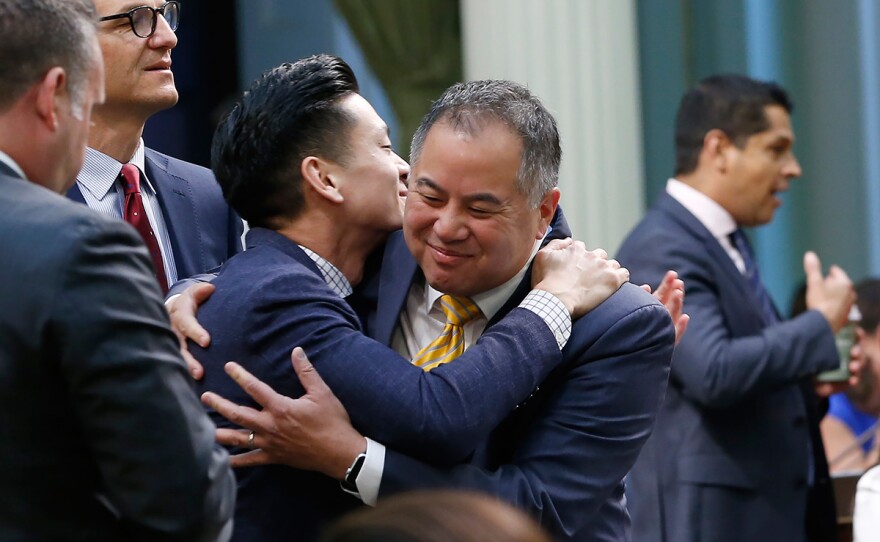Here's a look at some spending proposals in the $214.8 billion budget the California Legislature sent Thursday to Gov. Gavin Newsom.
HEALTH CARE
Low-income adults 19 to 25 living in the country illegally would get government-funded health insurance. It would cost an estimated $98 million to cover about 90,000 people.
Families of four earning as much as $150,500 a year would get help paying their monthly health insurance premiums.
People who refuse to buy health insurance would have to pay a tax.
The budget would spend $17.1 million to help people on Medi-Cal access vision, hearing, incontinence creams and washes, podiatry and speech therapy.
__
WILDFIRES
The budget proposal includes funding for 13 new fire engines, seven used C-130 air tankers and money to hire workers to operate heavy equipment during wildfires.
__
EDUCATION
California would spend $12,018 for every student in K-12 public schools — an increase of $444 over last year.
The budget would use $80 million in marijuana taxes to pay for child care for low-income parents, and $300 million from other sources to help build facilities for full-day kindergarten.
__
WATER
The budget takes $100 million from a fund to reduce greenhouse gas emissions to help clean up contaminated drinking water.
__
PENSIONS
The budget spends $356 million to temporarily reduce contributions by struggling school districts to the state's teacher requirement system.
__
PAID FAMILY LEAVE
The budget would expand California's paid family leave program from six to eight weeks. To pay for it, workers would see an additional 0.1% tax on wages.
__
HOMELESS AND HOUSING
The state would give $650 million to local governments to tackle homelessness and pump $500 million into a tax credit program to spur construction of residential rental units.
Lawmakers would spend $5 million on grants to homeless shelters so they can accommodate pets.
__
MISCELLANEOUS
The budget would allocate $5 million for suicide prevention measures on the Coronado Bridge in San Diego County.
It also seeks to end sales taxes on diapers and menstrual products with an exemption that would expire after two years.







